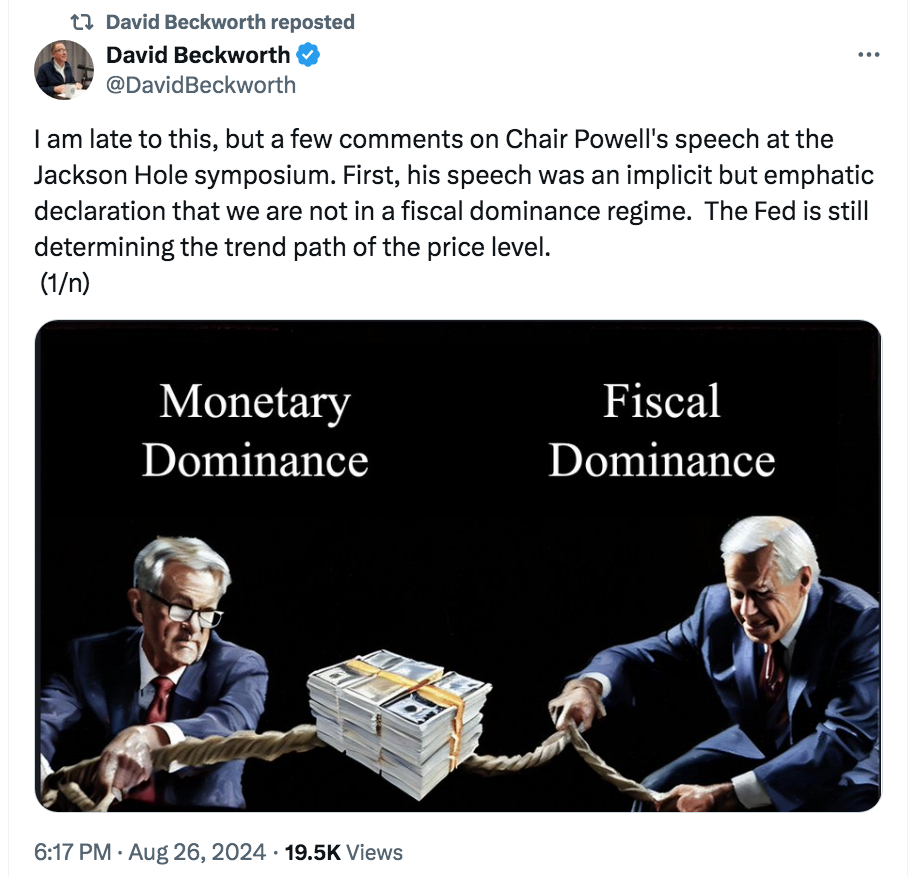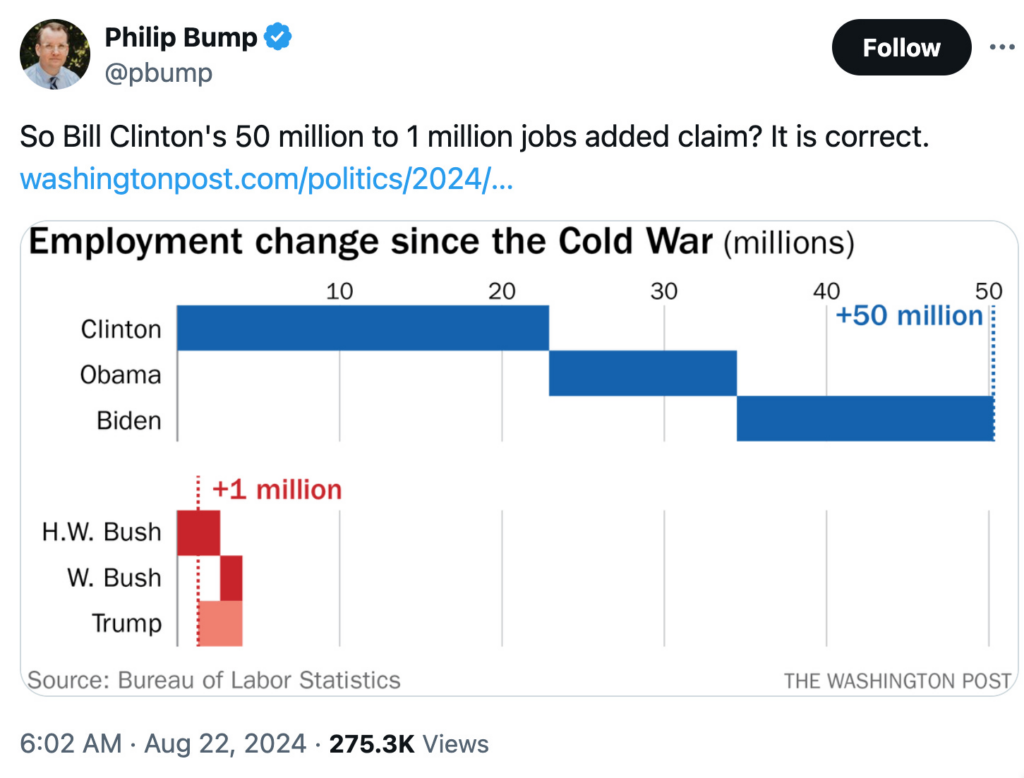Yglesias on political sorting
There has recently been a lot of discussion about how all of the conspiracy nuts are moving over to the GOP, whereas not so long ago they were at least as common among Democrats. Matt Yglesias has a very good post that points out how this is a problem for both sides.
The TLDR is that Republicans increasing suffer from a lack of people with the knowledge required to craft good public policy, and the Dems suffer from an epistemic monoculture with no dissenting views. Here are a few excerpts:
Similarly, I think policy-relevant research done in economics departments is a lot more useful and credible than other forms of social science, not because economists are so great but because an economics paper is much more likely to clear the “has at least one conservative read this?” test.
For reasons that sociologists, anthropologists, and social psychologists are probably better-situation to explain, if you work in an environment where all your colleagues and peer reviewers and people you talk things over with in a seminar are left-wing, you are going to get biased results. Again, not necessarily because anyone is trying to bias the results, but because each individual person has their own biases and when almost all of those biases are mutually reenforcing, you get a bad outcome. . . .
The basic problem is that just saying government programs should help address problems that aren’t addressed by the market alone, while true, offers basically no guidance about what to actually do. It is very, very important to come up with correct empirical analysis or else you’re not going to accomplish anything.
Yglesias uses this analysis to explain how the public health establishment screwed up during Covid.
The GOP has a different set of problems:
Are conservatives succeeding in building compelling institutions that can address their concerns about trends in American life? I think they pretty clearly are not, even according to conservatives. And on a policy level, they are completely up the creek without a paddle.
The pandemic revealed that many longstanding conservative criticisms of the drug approval process have some merit.
But there is no post-pandemic FDA reform push from the GOP, and certainly no agenda to take lessons learned from Operation Warp Speed and apply them to other issues. Republicans have become the party of conspiracy theorists who believe Bill Gates is using vaccines as a covert mind control program, so even when they hit on something that works, they don’t dare talk about it or build compelling narratives around it.
Read the whole thing.
Tyler Cowen has recently talked about how you need serious expertise to do effective deregulation. With the GOP well on the way to kicking all intellectuals out of the party, where will it find that expertise? Read some of JD Vance’s comments on economic policy, and just imagine him being put in charge. (Yeah, I know—the Dems. But doesn’t a country need at least one party that understands economics?)
Reason magazine has a very good article on how Trumpistas are jockeying for position in the next administration:
“A red flag went up if a prospective employee answered ‘deregulation and judges’ when asked to name their favorite Trump policies,” Swan wrote, also in 2022. “It was a sure sign the applicant could be a weak-kneed member of the establishment.”
But the solution to Trump’s first problem—ensuring his new staff is fully ideologically aligned with him—pulls against the solution to his second. He can have people who are true believers or he can have people who are competent; he probably can’t have both, because there are simply too few of them. . . .
“The best way to describe these lists is it looks like they’re looking for incompetence as the chief qualification,” says Cato Institute Senior Fellow Thomas Firey. “The bureaucracy, whether you love it or hate it, is an extremely complex machine that is extremely hard to operate….It’s like giving my 8-year-old the keys to a steam shovel. Nothing’s going to happen but a disaster.” . . .
Yes, a whole brood of groups, new and old, have positioned themselves to help a second Trump administration do better. But there are reasons to be skeptical that they’re up to the task. Behind the scenes, the various organizations are busy squabbling among themselves and jockeying for prominence. And several of them are gimcrack enterprises headed up by 20-somethings whose biggest claim to fame is acting out online via inflammatory social media posts.
Eh, what could go wrong? Read the whole thing.
PS. Razib Khan has a tweet showing that in per capita terms his blog has a much bigger audience in New York than Texas, and a much bigger audience in Washington than Florida. Even conservative bloggers are much more widely read in liberal states.
PPS. Watch this 60 seconds, and then extrapolate another 4 years of increasing senility. I’m going to have so much fun. Future historians will call this the era of senile old men.




